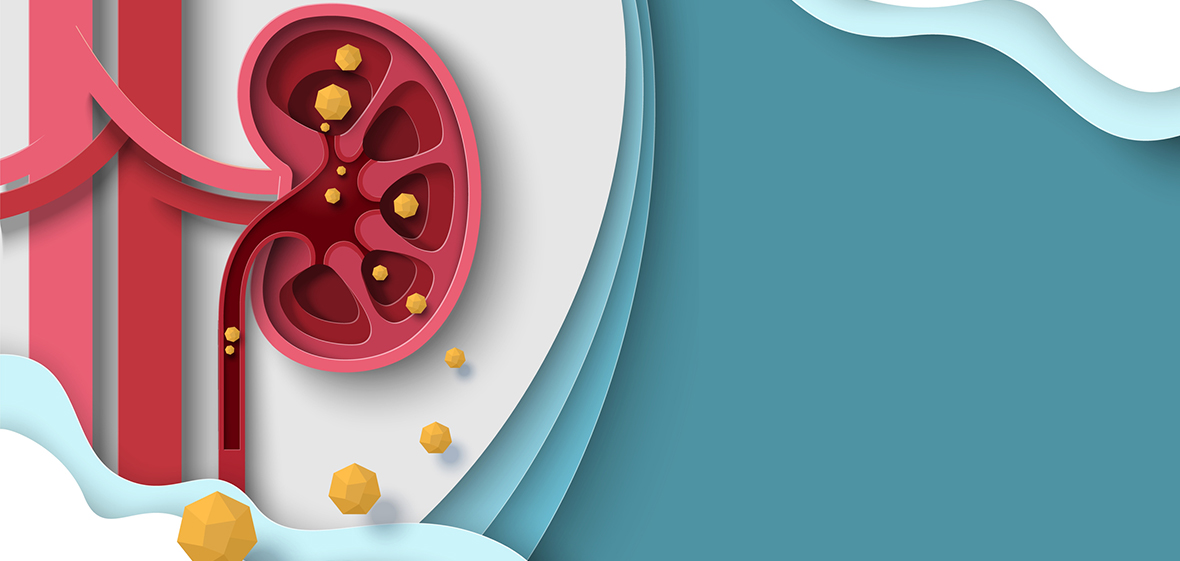
Kidney stones are hard objects or crystals that come in different shapes and sizes ranging from less than 2 millimeters or larger than 3 centimeters and can be formed in one or both kidneys. They form when there are high levels of minerals in the urine.
According to the National Kidney Foundation, one in 10 people will get a kidney stone at least once in their life, and almost half a million people go to the emergency room annually due to kidney stone problems. Many individuals need to be made aware of the causes that create these kidney stones and how to prevent them. Some people are more prone to getting kidney stones than others due to their genetics.
Types of Kidney Stones
Different types of kidney stones include:
- Calcium stones: Most kidney stones are made from calcium. Calcium oxalate and calcium phosphate are the two kinds of calcium stones.
- Struvite stones: These stones can form after you have just had a urinary tract infection. Bacteria that caused the infection can cause ammonia to build up in the urine, resulting in kidney stones.
- Uric acid stones: These can form when your urine has too much acid in it. Urine could become acidic if you eat shellfish, fish, organ meat and other meat.
- Cystine stones: These are known to be the rarest kidney stones and usually run in families because of a genetic disorder called cystinuria.
Risk Factors for Developing Kidney Stones
Most kidney stones aren’t developed through just one single cause. Several risk factors include:
- Not drinking enough liquids
- Extreme amounts of exercise or not enough exercise
- Obesity
- Overeating protein-rich foods, salt or sugar
- Family history of kidney stones
- Infections
- Blockage of the urinary tract
- Gastric bypass surgery
The following medical conditions can also cause kidney stones:
- Diabetes
- High blood pressure
- Osteoporosis
- Chronic diarrhea and inflammatory bowel disease
- Cystic fibrosis
- Kidney cysts
- Parathyroid disease
Taking certain medications can raise the risk of kidney stones forming, including:
- Calcium-based antacids
- Diuretics (pills to reduce water and sodium in the body)
- Indinavir (used to treat HIV)
- Topiramate (used to prevent seizures)
- Acetazolamide (used to treat glaucoma and epilepsy)
- Ephedrine (used for asthma and congestion)
- Furosemide and triamterene (used to reduce high blood pressure)
- Ciprofloxacin and sulfonamides (antibiotics)
- Zonisamide (used to treat epilepsy)
- Magnesium trisilicate (used to treat gastroesophageal reflux disease)
Symptoms of Kidney Stones
Symptoms of kidney stones can include:
- Foul-smelling, cloudy or bloody urine
- Chills or fever
- Vomiting
- Stomach pain that does not go away
- Pain in one or both sides of your lower back
Treatment of Kidney Stones
Depending on the severity of your kidney stones, treatment may be non-surgical or surgical. Drinking more water is the most common non-surgical treatment method. Surgery is needed if your kidney stone is big or if it stops urine flow.
The following surgical procedures can be used to treat kidney stones:
- Shock-wave lithotripsy, which is noninvasive and uses sound waves to break up the kidney stones so they can be passed through urine
- Ureteroscopy, which is when an endoscope is placed through your ureter to remove or break up the kidney stones
- Percutaneous nephrolithotomy/nephrolithotripsy, which is a procedure for huge or abnormally-shaped kidney stones
If you are concerned about if your medications or your medical condition could put you at risk for getting kidney stones, or if you develop any symptoms related to a kidney stone, contact your health care provider.
UofL Physicians – Nephrology, UofL Physicians – Urology and UofL Physicians – Urology Associates can help if you have risk factors for or experience kidney stones.









